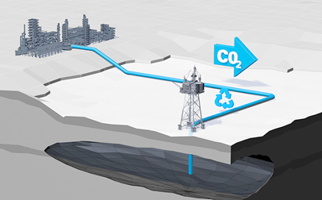
The Oil and Gas Authority (OGA) has today (14 June 2021) published its Stewardship Expectation 12 which outlines the ways in which companies should collaborate with their supply chain contractors.
The Expectation explains that strong contracting relationships are needed to ensure the UK has an effective and sustainable supply chain. Currently, the OGA is aware of instances where relationships between companies and their supply chain have been undermined by poor behaviour or practice including a lack of commitment to industry standard payment terms and overly complex and time-consuming tendering negotiations. These issues have been ongoing for years without significant improvement and this has been the driver leading to the introduction of the Stewardship Expectation.
Going forward companies will be expected to demonstrate they are delivering the following:
- Adoption of industry standard payment terms: typically, a 30-day payment period.
- Publishing - in advance - upcoming work and tenders available for supply chain through regular updating of the OGA’s Energy Pathfinder portal. This includes maintenance, brownfield, energy transition and decommissioning projects.
- Use of standard and simplified tendering practices where possible, to avoid burden on the supply chain.
- Alignment with cross-industry initiatives, including the North Sea Transition Deal.
The Expectation also emphasises remuneration models should reward contractors when cost and time savings are made, and companies should reconsider their limitations of liability to prevent undue burden on the supply chain.
Some companies within the industry are already demonstrating these positive collaborative behaviours, which the OGA has identified within its Supply Chain Action Plan (SCAP) Report 2021.
Since the introduction of the SCAP process in 2018, there is evidence to demonstrate it has helped to drive a greater focus on collaboration between operators and the supply chain community. According to the report, the OGA has witnessed a positive change in how operators approach the market, use Energy Pathfinder, embrace innovation, and consider value-driven incentivised contacts. Many operators now acknowledge the supply chain may hold the key to unlocking projects and are reaching out more proactively. This mindset is helping to drive additional value into project delivery.
The report however does recognise some instances of poor behaviour. For example, one operator repeatedly tendered the same scope of work only for the project to be cancelled. This behaviour cost the supply chain significant sums in tendering and potentially weakened the standing of that operator for future tendering activity.
The OGA’s Project Insight Report (published in 2019) indicates significant improvements were noted in project execution (both in terms of delivery on time and on budget) and much of these improvements can be attributed to culture change driven by SCAPs.
The OGA will monitor adherence to our expectations through a number of mechanisms including SCAPs, operator engagement in the Tier Review process, and by checking participation on Energy Pathfinder.
Bill Cattanach, Head of Supply Chain at the OGA said: “The OGA has consistently highlighted the importance of collaboration between operators and supply chain, and there have been some good examples of improvement in this area. However, we are still seeing evidence of less effective, less collaborative and ultimately less sustainable ways of working in areas such as tendering, commercial models and payment terms, hence the need to formalise the new Expectation. Contractors at all levels should be afforded an opportunity to participate and be paid, both on time and fairly, for the work they do. The SCAP Report 2021 shows that when operators approach the market with the right mindset it can be a win-win for all parties.”
Ends
Notes to editors:
- Effective from February 2021 the OGA has formally revised its Strategy (the “OGA Strategy”) to clarify that relevant persons must collaborate with their supply chain to support the efficient delivery of such upstream oil and gas projects and operations.
- SCAPs were introduced in 2018 following consultation with industry. They were identified as being required following a 2017 OGA report that reviewed the execution performance of a number of major oil and gas development projects between 2011 and 2016. This report highlighted, amongst other things, that over 75% of projects executed in the UK Continental Shelf (UKCS) during that period were less than optimum; either delivered late and/or significantly over budget. The report identified several contributory factors and made recommendations for future improvement, including early and collaborative engagement with the supply chain.
For further information please contact:
Chrissie Innes, Communications Manager
Tel: +44 (0) 300 020 1072
Email: pressoffice@nstauthority.co.uk


